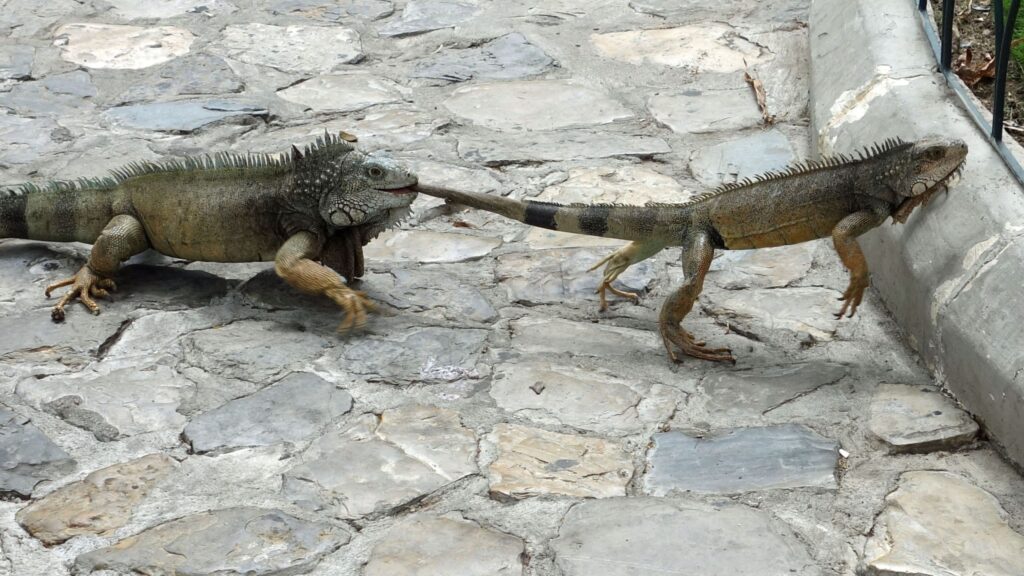Introduction
Iguanas can pose significant health risks if they bite. If you’ve ever wondered about the dangers of an iguana bite wound, we hope this will provide essential information on the potential bacterial infections that can arise, how to treat such wounds, and how to prevent infections. As experts from Iguana Busters, we offer insights into the risks and necessary precautions to take when dealing with iguanas.
Understanding Iguana Bite Wounds
Iguana bite wounds can vary in severity, ranging from minor scratches to deep puncture wounds. Iguanas have sharp teeth and strong jaws, which they use primarily for defense. When an iguana feels threatened or cornered, it may bite as a way to protect itself. These bites can be painful and, if not treated properly, can lead to complications.
Risks of Bacterial Infections from Iguana Bites
One of the significant risks associated with iguana bite wounds is the potential for bacterial infections. Iguanas carry various bacteria in their mouths, which can be transmitted to humans through a bite. A notable bacterium is Mycobacterium marinum, which can cause severe infections that might take months to surface. Infections can manifest with symptoms such as redness, swelling, pain, and, in severe cases, abscesses or systemic illness.
Iguana bacterial infection is not uncommon and requires prompt medical attention. If left untreated, these infections can become severe and lead to further health complications. It is crucial to be aware of the symptoms and seek medical help if you suspect an infection.
Treatment and Prevention of Iguana Bite Infections
Proper iguana bite treatment is essential to prevent infections. Here are some steps to take if you are bitten by an iguana:
- Clean the wound immediately: Wash the bite area thoroughly with soap and water to remove any bacteria.
- Disinfect the wound: Apply an antiseptic solution to reduce the risk of infection.
- Cover the wound: Use a clean bandage to protect the area from further contamination.
- Seek medical attention: Visit a healthcare provider for further evaluation and possible antibiotic treatment.
Preventing iguana bite infection involves handling iguanas with care and respect. Avoid provoking or cornering them, and always use proper protective gear when handling these reptiles.
Frequently Asked Questions
Iguana bites can transmit various bacteria, including Mycobacterium marinum.
Symptoms include redness, swelling, pain, and, in severe cases, abscesses or systemic illness.
Clean the wound, disinfect it, cover it with a bandage, and seek medical attention.
Handle iguanas with care, avoid provoking them, and use protective gear when necessary.
Conclusion
An iguana bite wound can lead to serious bacterial infections if not treated promptly and properly. Understanding the risks and knowing how to treat and prevent these infections are crucial for anyone who may come into contact with iguanas. At Iguana Busters, we are dedicated to providing safe and effective iguana control and removal services to minimize these risks.
If you’re dealing with iguanas and need professional assistance, contact Iguana Busters today. We offer expert solutions to help keep you and your property safe from these invasive reptiles.
In conclusion, it’s important to handle iguanas with care to avoid bites and potential infections. By taking the necessary precautions and seeking professional help when needed, you can ensure your health and safety.


